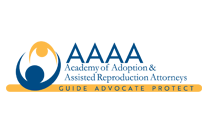Yesterday, in D.M.T v. T.M.H., the Florida Supreme Court held that the assisted reproductive technology statute was unconstitutional because it does not provide equal protection to same-sex couples. The current statute only permits a commissioning couple to be heterosexual. In a 4-3 opinion, the Florida Supreme Court held that this law violates fundamental constitutional rights to homosexual couples. If you want to read the full opinion, click here.
In T.M.H., the case involved a lesbian couple who decided to have a child together. They were in a committed relationship for more than a decade. One woman provided her egg (the “biological mother”) and the other woman carried the child (the “birth mother”). Unfortunately, a few years after the birth, the relationship dissolved, and the birth mother refused to give the biological mother access to the child, because she said the biological mother was merely an “egg donor” under Section 742.14Florida Statutes. The statute in question is meant for anonymous egg donors, and requires that they relinquish all rights to the children born from their eggs. Thus, her argument was that even though she was in a committed relationship with the biological mother, the bio mom should be considered to be nothing more than an egg donor.
While the Supreme Court held that the biological mother was a donor under the definition of the statute, it also determined that the statute was unconstitutional as applied in T.M.H., because it denied her the right to raise her child.
“It would indeed be anomalous if, under Florida law, an unwed biological father would have more constitutionally protected rights to parent a child after a one night stand than an unwed biological mother who, with a committed partner and as part of a loving relationship, planned for the birth of a child and remains committed to supporting and raising her own daughter,” the Florida Supreme Court held.
The Assisted Reproductive Technology (“ART”) statute also defines “commissioning couple” as an intended mother and intended father, leaving no opportunity for same-sex couples to utilize the ART statute (same-sex couples have utilized ART to create their families in Florida, though these arrangements are normally created under Chapter 63 as Pre-Planned Adoption Agreements). The Florida Supreme Court held that the law violates equal protection law because the definition of commission couple didn’t apply to same-sex couples.
The Florida Supreme Court held: “We conclude that the state would be hard pressed to find a reason why a child would not be better off having two loving parents in her life, regardless of whether those parents are of the same sex, than she would by having only one parent.” Indeed, this is great news for same-sex couples wishing to utilize ART to create their families in Florida.






